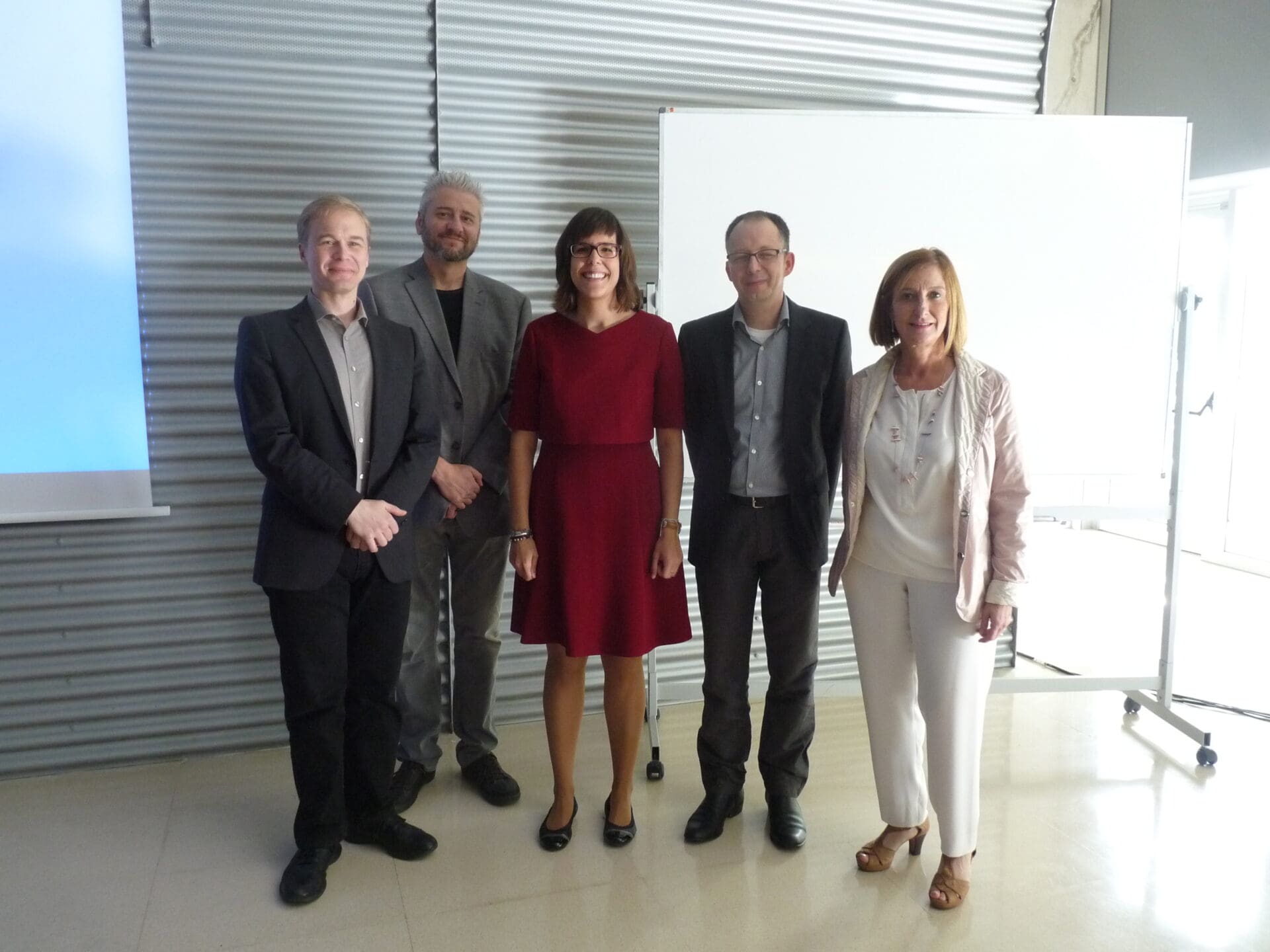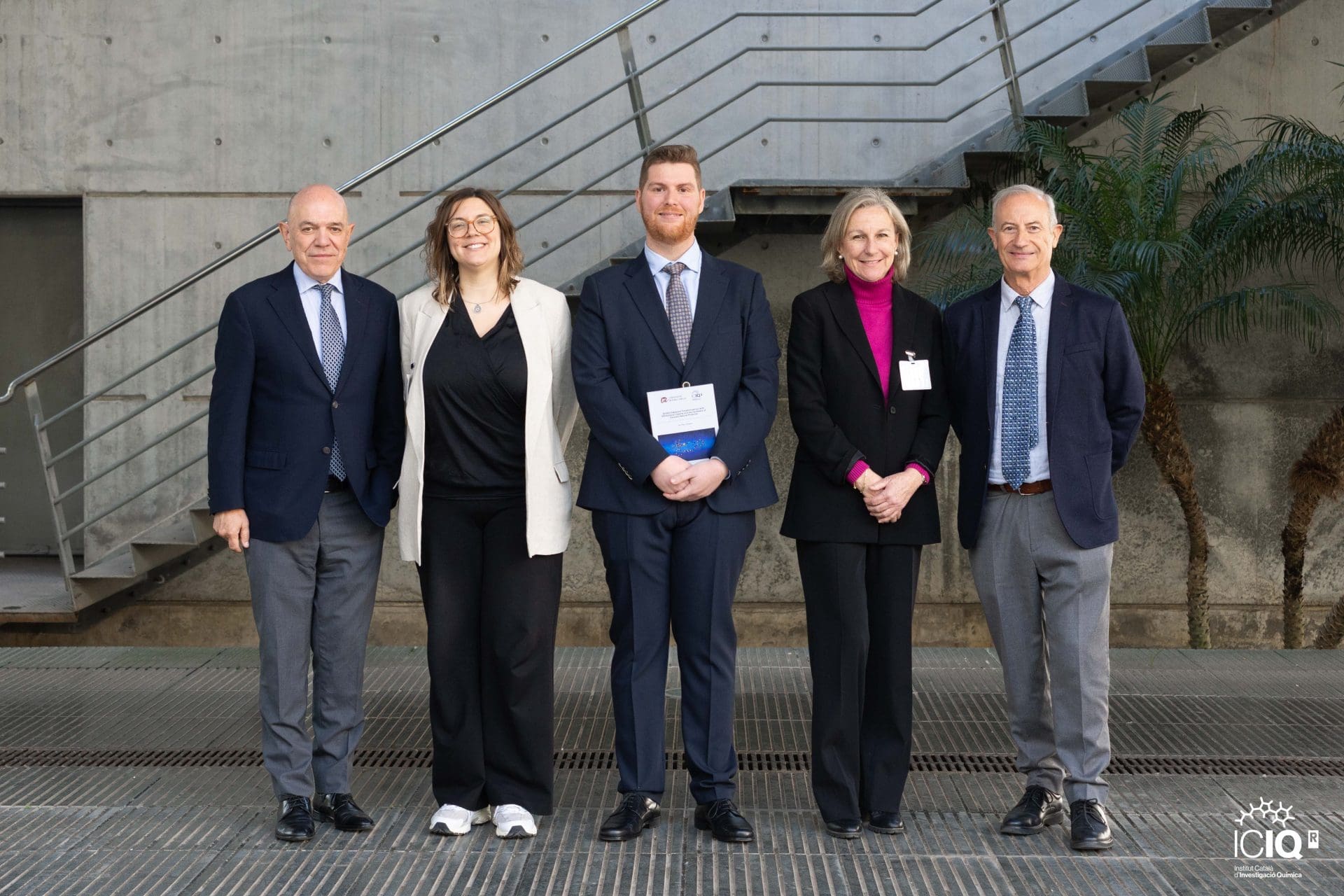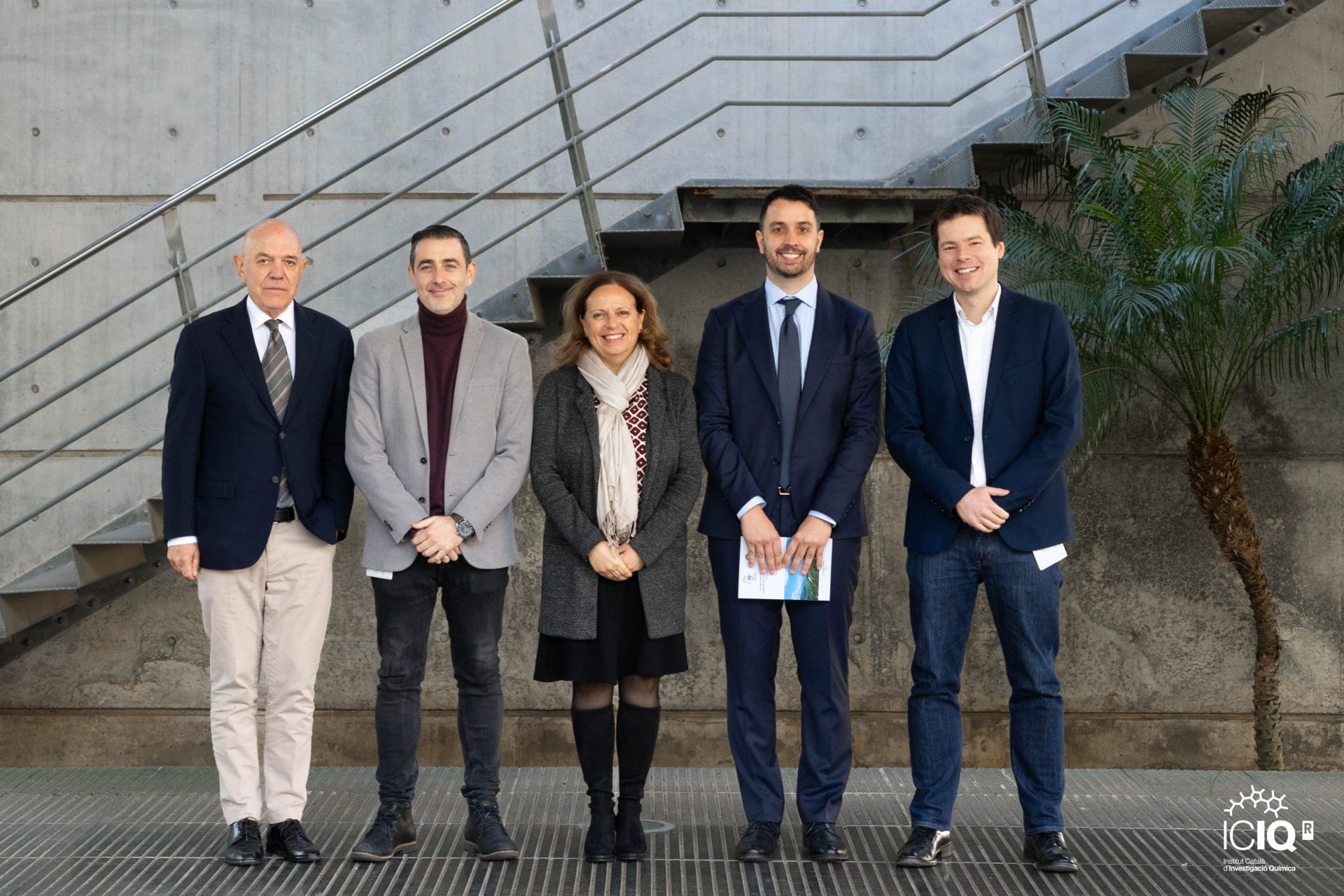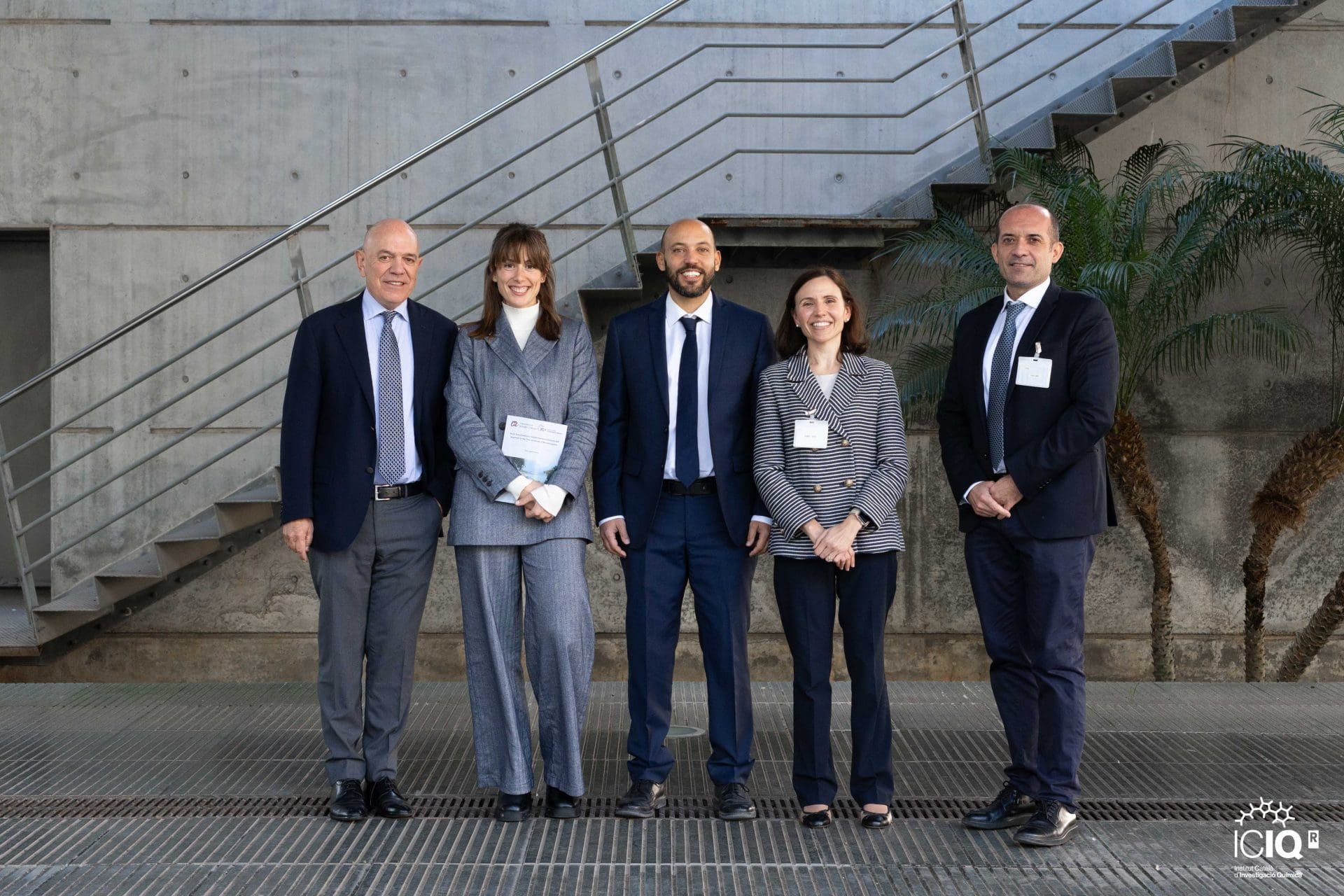New Doctor at ICIQ!
Marta Blasco, PhD student under the supervision of Prof. José Ramón Galán-Mascarós (ICIQ), has defended her PhD Thesis entitled “Earth Abundant Materials for Electrocatalytic Water Oxidation: Enhancing Efficiency and Robust Performance in Acidic, Neutral and Alkaline Media” (assigned to the Physical and Inorganic Chemistry Department of the Universitat Rovira i Virgili) publicly on October 26th at the ICIQ Auditorium.
The members of the evaluation committee were: Prof. Rosa María Llusar (Universitat Jaime I), Prof. Wolfgang Schmitt (University of Dublin) and Prof. Kevin Sivula (École Polytechnique Fédérale de Lausanne)
Abstract
The most plausible solution to satisfy the world’s energy demand, following an environmentally friendly approach, is the use of renewable energy, such as the energy from the sun. Its storage into chemical bonds (i. e. H2 and O2) can be a smart strategy to overcome the energy source intermittency. The bottleneck of these storing systems is the oxidation reaction of water to O2. Therefore, the search for a robust, efficient and inexpensive heterogeneous water oxidation catalyst is one of the greatest challenges that scientists are facing nowadays for the implementation of this energy-solving strategy as a commercial technology.
In this Doctoral Thesis, different approaches to develop suitable working anodes based on Earth abundant metals for the electrocatalytic water oxidation reaction in different media are presented. In the first part of this work, the nonanuclear cobalt cluster [Co9(H2O)6(OH)3(HPO4)2(PW9O34)3]16− (Co9) has been precipitated with Ba2+ and Cs+ to obtain water-insoluble salts that can be blended with a solid-state matrix, such as carbon paste. The BaCo9 have shown excellent and unparalleled performance for the electrocatalytic water oxidation in acidic media, yielding 100% Faradaic efficiency matched with good long-term stability. The second part of this work has been focused in the incorporation of the homogeneous Co9 POM into a conducting polymer matrix (i. e. polypyrrole) to obtain organic-inorganic anodes active in electrocatalytic water oxidation reaction in neutral conditions. This interesting processing approach has yielded versatile electrodes obtained from low cost and available raw materials. The final chapter deals with the screening of binary and ternary mixed oxide compositions, based on Ni, Zn, Fe and Cr, for the enhancement of electrocatalytic water oxidation in alkaline media. Cubic spinel phases, as well as, a-Fe2O3 hematite have shown best efficiency combined with good long-term stability under working conditions.
Related news

Let's create a brighter future
Join our team to work with renowned researchers, tackle groundbreaking
projects and contribute to meaningful scientific advancements







 17-01-2025
17-01-2025 


















